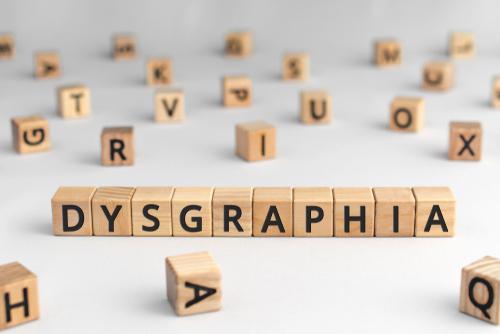Analytical skills Worksheets for 5-Year-Olds
8 filtered results
-
From - To
Help your 5-year-old boost critical thinking and problem-solving abilities with our engaging Analytical Skills Worksheets. Designed by educational experts, these worksheets encourage young minds to observe, infer, and reason through a series of fun and interactive activities. From pattern recognition to sorting, these worksheets enhance cognitive development in an enjoyable way. Perfect for kindergarteners, they not only provide essential academic support but also build a foundation for lifelong learning. Printable and easily accessible, our worksheets offer a fruitful mix of challenges that cater to the curious nature of your little ones. Start nurturing analytical thinking today!
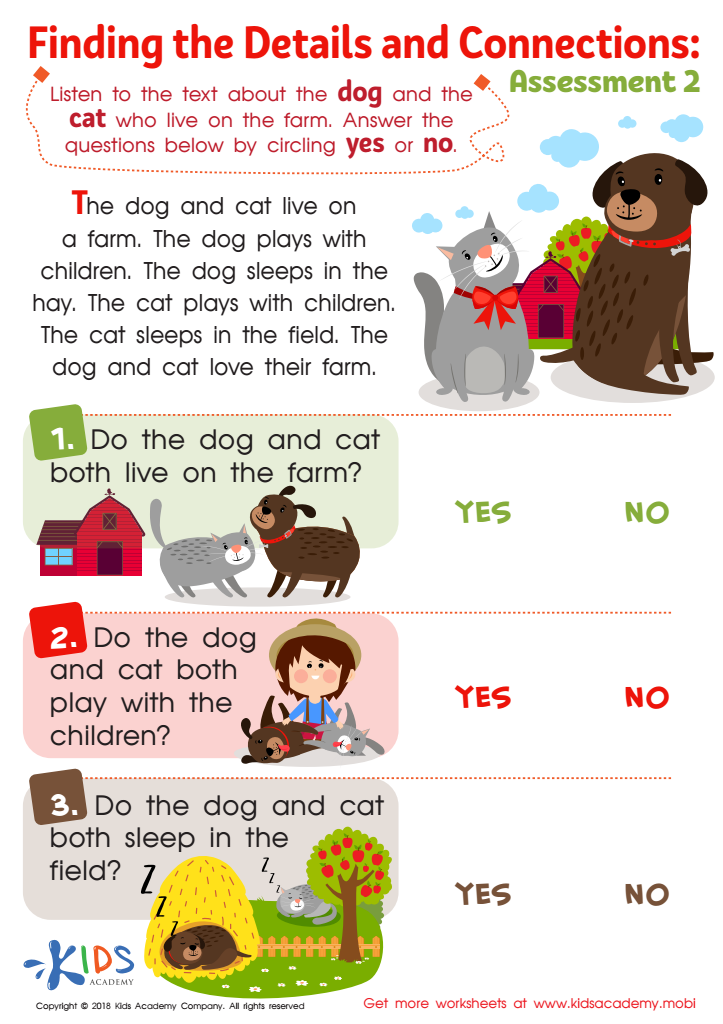

Finding the Details and Connections: Assessment 2 Worksheet
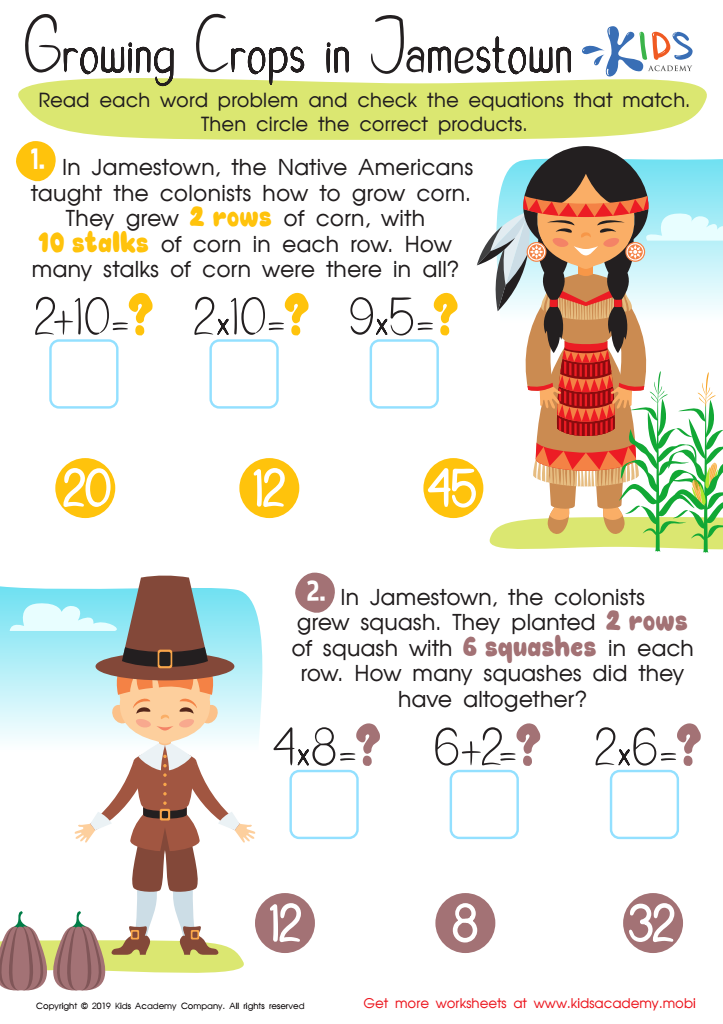

Growing Jamestown Worksheet
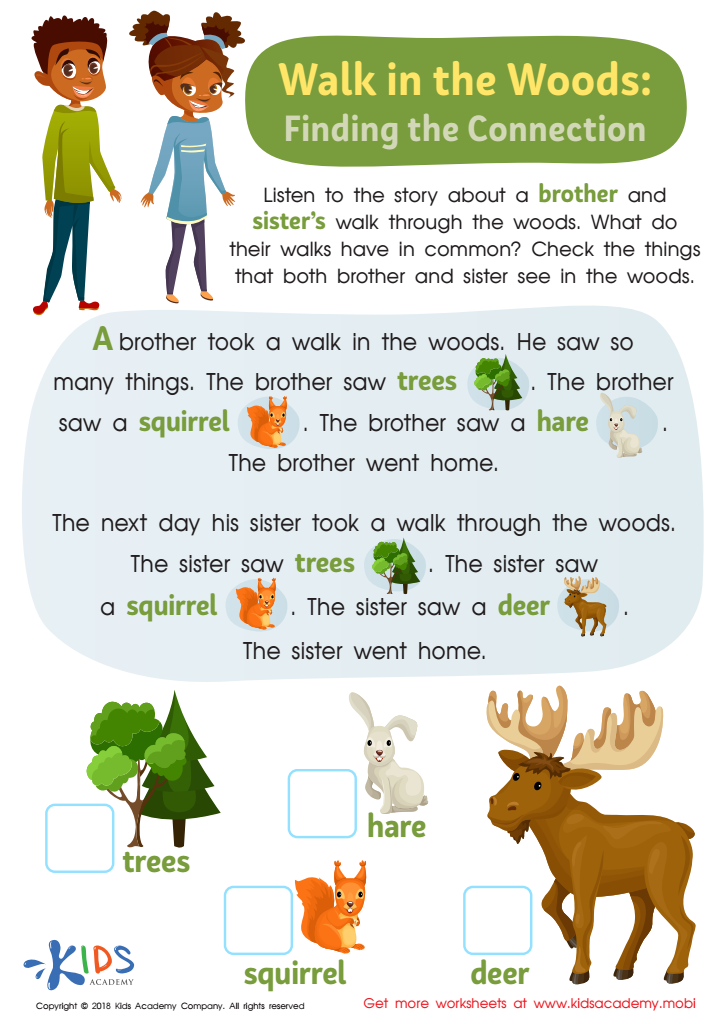

Walk In the Woods: Finding Connections Worksheet
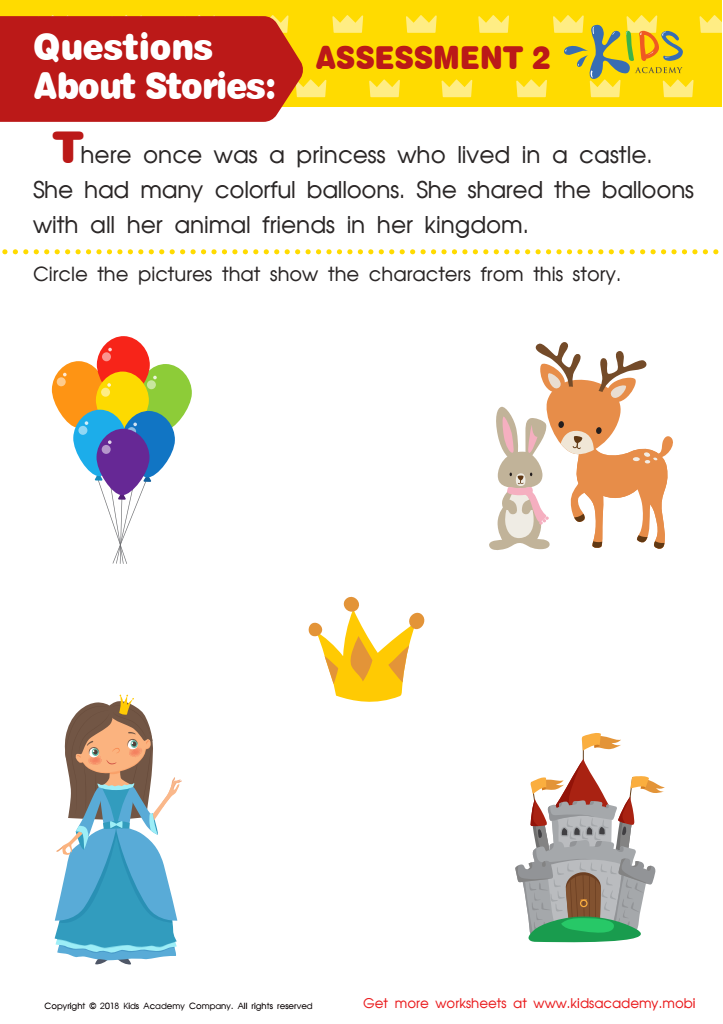

Questions About Stories: Assessment 2 Worksheet
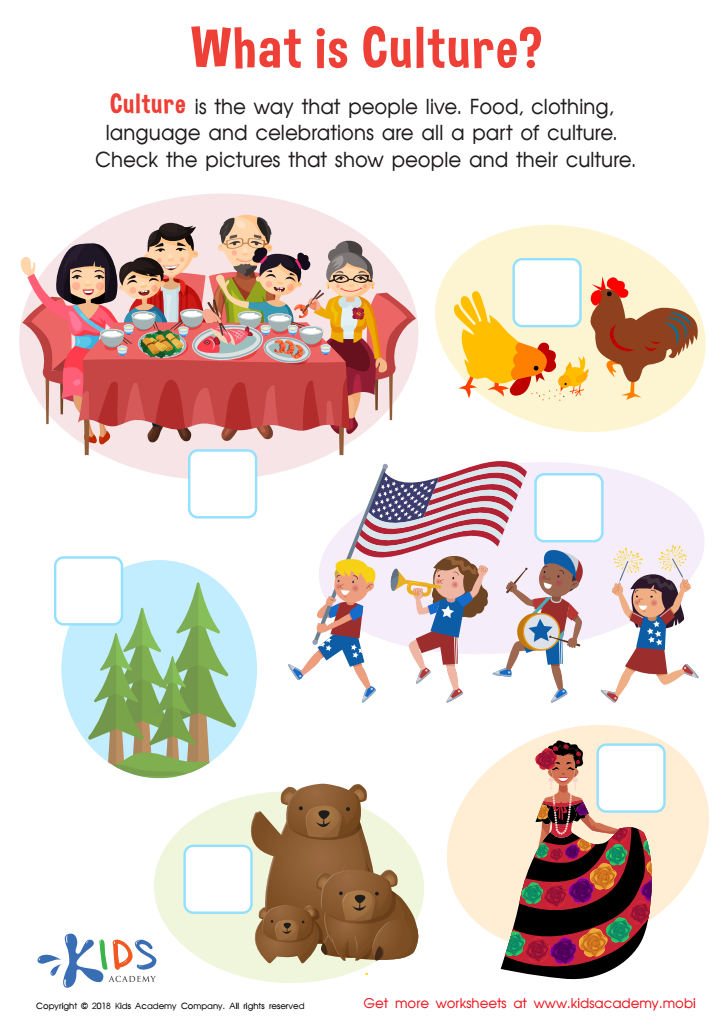

What Is Culture? Worksheet
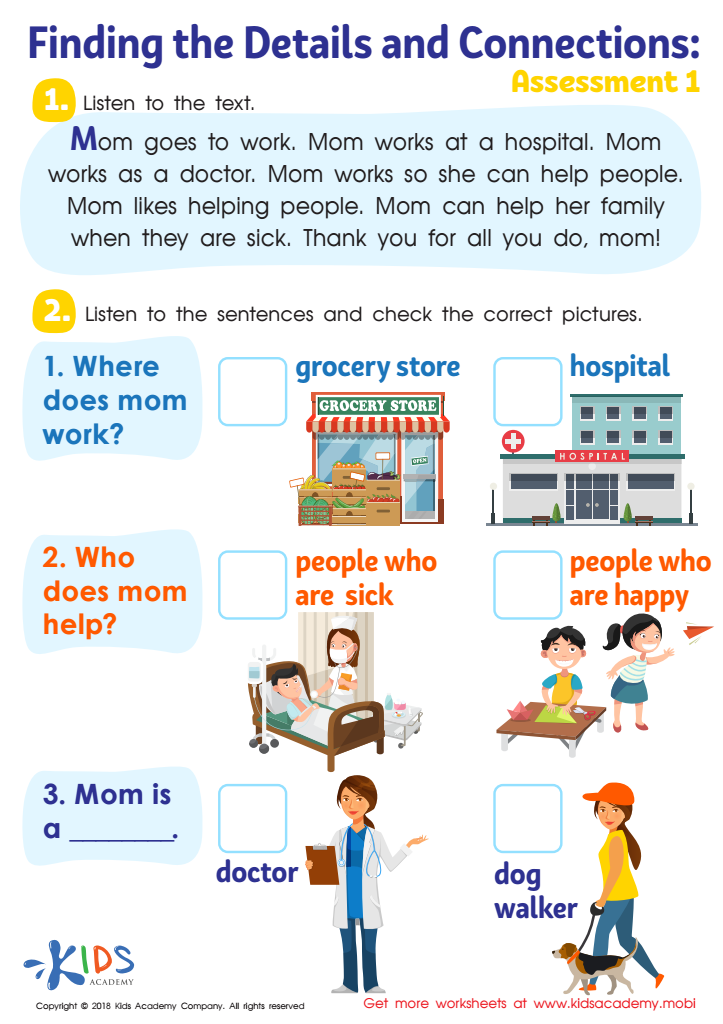

Finding the Details and Connections: Assessment 1 Worksheet
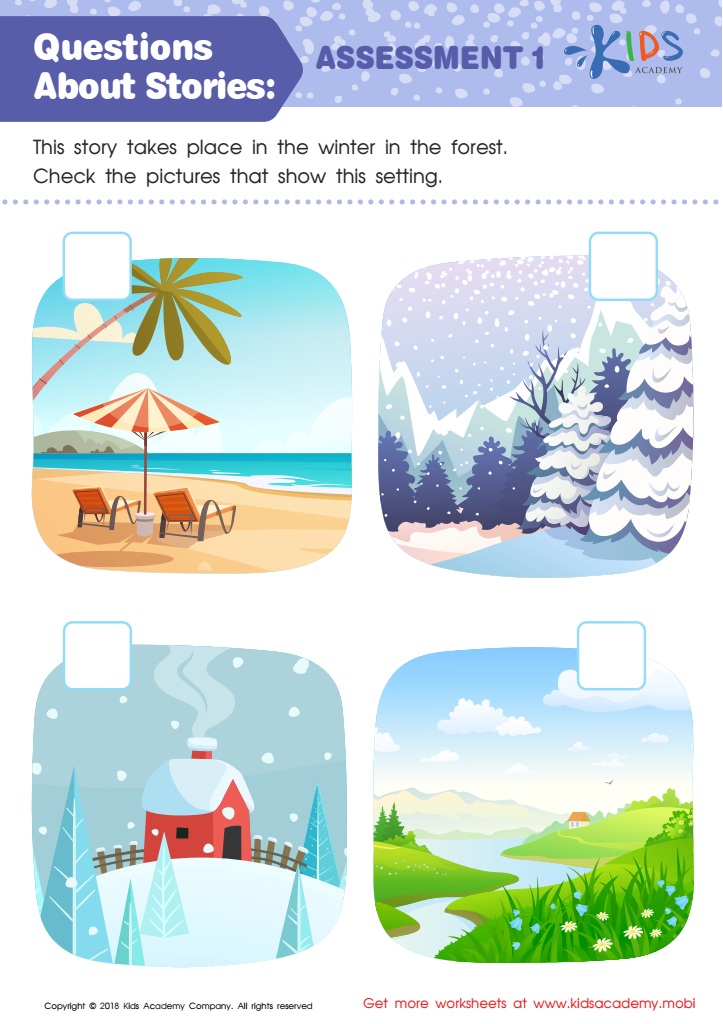

Questions About Stories: Assessment 1 Worksheet
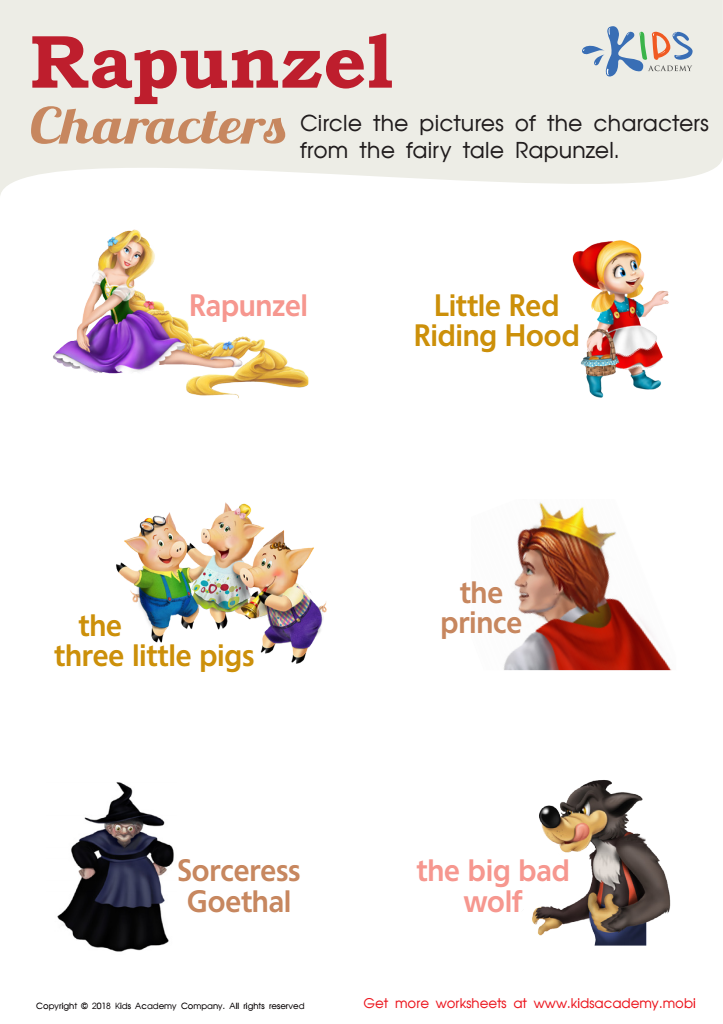

Rapunzel Characters Worksheet
Parents and teachers should prioritize developing analytical skills in 5-year-olds because these skills are foundational to cognitive growth and future academic success. At this early age, children's brains are highly pliable and receptive to new information, making it the perfect time to introduce basic problem-solving and critical thinking activities. Analytical skills enable children to recognize patterns, make connections, and solve problems systematically. For example, through games, puzzles, and structured play, kids start to understand how to break down tasks, ask questions, and make predictions about outcomes.
Furthermore, fostering these skills at a young age contributes to building self-confidence and independence. Children become more adept at navigating complex situations, making decisions, and understanding cause-and-effect relationships. This empowers them to approach challenges logically rather than emotionally, reducing frustration. Socially, it helps them interact more effectively with peers by negotiating and resolving conflicts. Furthermore, strong analytical skills in early childhood can lead to better performance in subjects like math and science, providing a solid foundation for later learning.
Nurturing these abilities won't just help in formal education but also in everyday life, encouraging curiosity and a lifelong love of learning. Thus, a focus on analytical skills early on can shape well-rounded, capable, and inquisitive individuals.

 Assign to My Students
Assign to My Students







